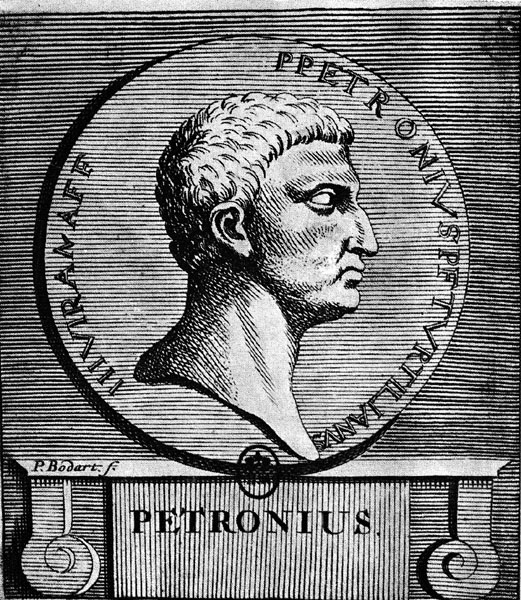Past Perfect: Among the Vulgarians
The first-century A.D. satirist Petronius lampoons Nero’s Rome

The author of the Satyricon, one of the greatest satires in Western literature, is known to us simply as Petronius (c. 27–66 A.D.). He was probably—but not certainly—the historical figure Gaius Petronius Niger, a member of Emperor Nero’s court who served as governor of Bithynia (in present-day Turkey) in 62 A.D. The next year Nero appointed Gaius Petronius Niger as his arbiter elegantiarum, or adviser on good taste. According to the Roman historian Tacitus, “The emperor thought nothing charming or elegant in luxury unless Petronius had expressed his approval.” In 66 A.D., Petronius, having been falsely implicated in a plot against Nero, took his own life. “He did not fling away life with precipitate haste,” writes Tacitus, “but having made an incision in his veins, and then, according to his humour, bound them up, he again opened them, while he conversed with his friends … He dined [and] indulged himself in sleep.” In the following excerpt from the Satyricon (courtesy of Penguin Books [London, 1986], translation by J.P. Sullivan), Petronius pokes fun at the debauchery of Nero’s Rome—as a freed slave named Trimalchio, now worth millions, entertains the narrator and other guests at a lavish and bizarre banquet.
Already a library member? Log in here.
Institution user? Log in with your IP address.

